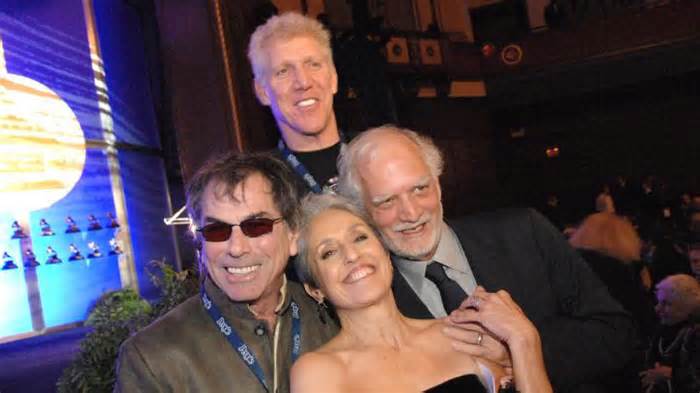What comes to mind when you hear the expression “economic progression of music”?Although music has been shown to have a positive effect on the economy, the idea that governments support the artistic elegance of musicians has only become a fundamental issue. topic of discussion in recent years. The current economic scenario due to the coronavirus has left many musicians with gaps in their sources of income very large, highlighting more than ever the desire to focus on music’s economic progress efforts.
This expansion is due in large part to the 2015 Austin Music Census, led by Don Pitts, former head of the media and entertainment department for the city of Austin, Texas. Detailed research revealed a lot of compelling facts about Austin’s music ecosystem, not all of them. which were positive. What stands out is that more than 50% of Austin’s music creators qualify for Section 8 housing based on their music-related source of income, a staggering statistic from the “Live Music Capital of the World. “Income levels are significantly lower in markets that don’t include music as well as Austin.
In recent years, however, the tone of verbal exchange has become more positive, sparking a total “Music Cities” movement. Companies such as Sound Diplomacy and Sound Music Cities (run through Don Pitts) provide municipalities around the world with financial support. effect on surveys to show the true value of music to their local economy, highlighting how cities can further help their artistic class. Notable studies come from New York, Seattle, Vancouver, Charlotte, North Carolina, Pittsburgh, Pennsylvania, and Huntsville, Alabama. “A music city is a city, regardless of size, that develops active and committed policies to perceive the role of music in its communities in terms of economic development, tourism, inclusive expansion, and strategy,” adds Shain Shapiro of Sound Diplomacy.
In 2015, the International Federation of the Phonographic Industry (IFPI), in partnership with Music Canada, produced the report “Mastering Of A Music City”. This detailed study provided context on how municipalities can contribute to their music community. The recommendations come with the creation of a formal music office, music tourism programs, affordable housing, tax incentives, access to continuing education, career progression resources, and music- and musician-friendly policies.
While the process of generating an economic effect in the study can take years, some cities have already begun to implement the report’s recommendations. The London inquiry called for the creation of the London Music Board, a “Night Czar” and the Sounds. London, a month-long musical birthday party sponsored by the entire city. Thirty-five cities around the world have also designated “night mayors” or similar purposes to focus on the well-being of their entertainment industries.
One of the main benefits that cities have gained from their investments in their music economy is music tourism. From entertainment districts to primary festivals, travelers from all over the world flock to the experiences. Music tourism benefits several sectors, including hospitality, catering, transportation, etc.
A 2019 UK study found that 11. 2 million music tourists spent £4. 5 billion ($5. 6 billion) and maintained more than 45,000 jobs. Even individual festivals, which are usually performed in music-friendly cities, produce huge revenue-generating tourist attractions, adding South Austin to Southwest ($355 million), New Orleans’ Jazzfest ($300 million) and Greater Palm Springs’ Coachella ($400 million). In general, cities whose music economy has noticed a positive monetary impact. Examples come with Nashville ($5. 5 billion), New York. ($3. 4 billion), Seattle ($1. 8 billion) and Austin ($1. 8 billion), among others.
I have, and sincerely hope, that efforts for the economic progress of music will intensify, especially after the pandemic. While some experts recommend that live events could be suspended until 2021, something that has already been supported by the mayor of Los Angeles, musicians, enthusiasts, and entertainment-related businesses will continue to suffer.
Federal systems and music foundations provide monetary assistance, but the music economy will need committed resources to survive. Investments in music-specific research, the creation of new policies and infrastructure are needed for art to continue to thrive in urban spaces, one of the main reasons. Why urban centers have experienced a recent resurgence since the gigantic sprawl of the suburbs over the past 50 years. “Federal data doesn’t capture the truth about music scenes, in part because work in the music industry isn’t reflected in existing labor codes. “A huge proportion of music professionals remain invisible according to existing professional knowledge,” says Don Pitts.
Despite the difficulties related to the economic slowdown, creatives are resisting. Austin experienced a 20% expansion in its entertainment between 2005 and 2010, an era that included the Great Recession (2008-2010), the biggest economic downturn since the Great Depression. (1929-1933).
Given the economic price of music and the arts and the resilience of creators, more governments, from the federal to the local level, deserve their entertainment industries to be a profitable investment. Imagine how many benefits music communities can get from aid projects before. a crisis and not when it’s too late.
Updated May 14, 2020: Sound Diplomacy, in partnership with the Recording Academy and IMPALA, among others, has released the “Music Cities Resilience Handbook” and the #BetterMusicCities effort to fight industry adjustments due to COVID-19.
This article is a continuation of my post-pandemic predictions about the industry. Read my first prediction here.

